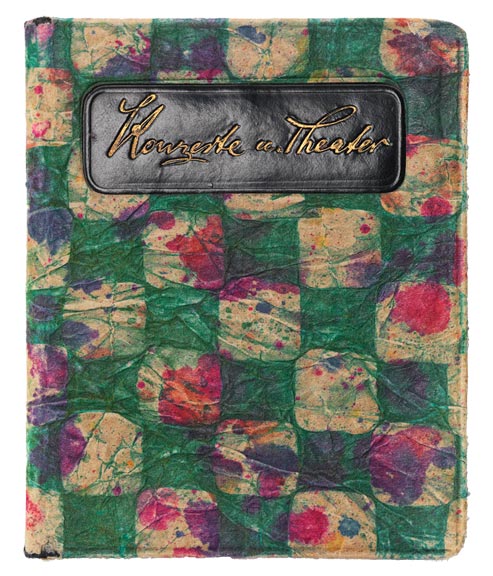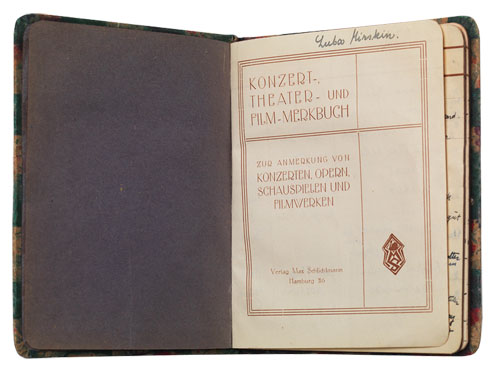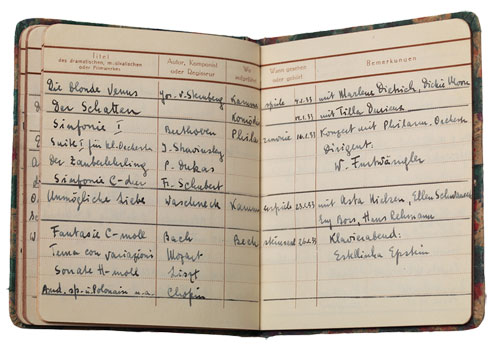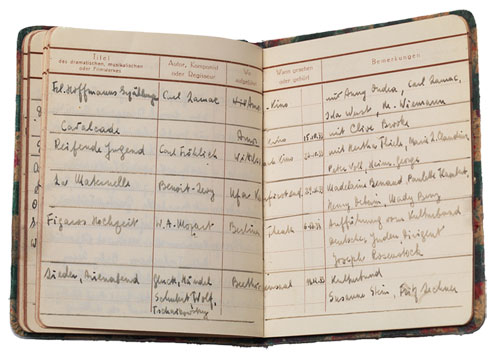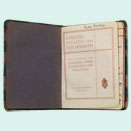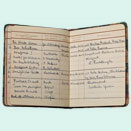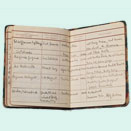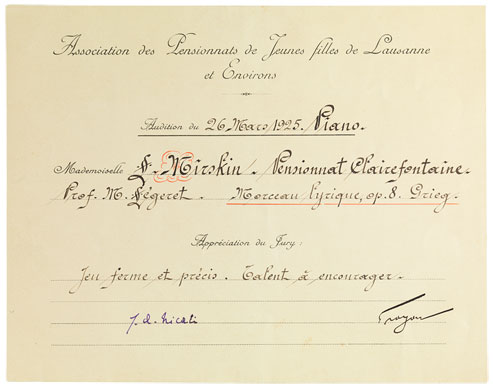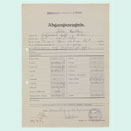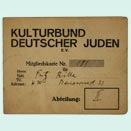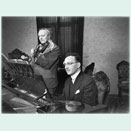Monday
11 December 1933
Concert, theater and film diary kept by Luba Mirskin
On the evening of 11 December 1933 the Cultural League of German Jews put on a concert in the Beethoven Hall of the Berlin Philharmonic. Alto Susanne Stein and baritone Fritz Lechner performed songs and arias by Schubert, Gluck, Handel and other composers. Nineteen-year-old Luba Mirskin was seated in the audience and afterward recorded details of the performance in her "concert, theater and film diary, " which she had been keeping for over five years.
A lover of culture, Luba Mirskin (1914–1996) had moved to Berlin with her parents and sister in 1925. The family rented rooms in different pensions in Charlottenburg, where Luba usually found a piano to play. There the young girl also met a variety of actors and musicians, who occasionally gave her free tickets to concerts or theater productions. In addition, she went to the cinema almost every week. Luba carefully entered information about all these cultural events—including composer, director, performers and venues—into her book for "notes on concerts, operas, plays and films." In this way the diary came to reflect the rich cultural life of the German capital.
The first entry is devoted to the silent film Doña Juanna starring Elisabeth Bergner, which Luba saw in March 1928 at the age of thirteen. The last entry contains details of the concert on 11 December 1933. At that time, faced with the Nazis‘ anti-Semitic policies, the Mirskin family had decided to leave Germany.
After the Mirskins immigrated to Palestine the following year, Luba devoted herself to her second artistic passion after music and enrolled in a training program taught by the photographer Zvi Oron. She traveled from Jerusalem to Tel Aviv every day to take part.
In 1942 she co-founded the "Photo Ora" studio in Jerusalem with a friend. The two young women were so successful with their children‘s photographs that Luba was even able to support her now widowed mother.
In 1948 she married the lawyer Stephan Baumblatt, a native of Bad Nauheim. The couple returned to Germany in 1950 and settled in Mannheim, where Stephan Baumblatt served as a district attorney. Considered a thoroughly unsentimental person by her relatives, Luba surprised them by keeping the diary until she died.
Miriam Goldmann
